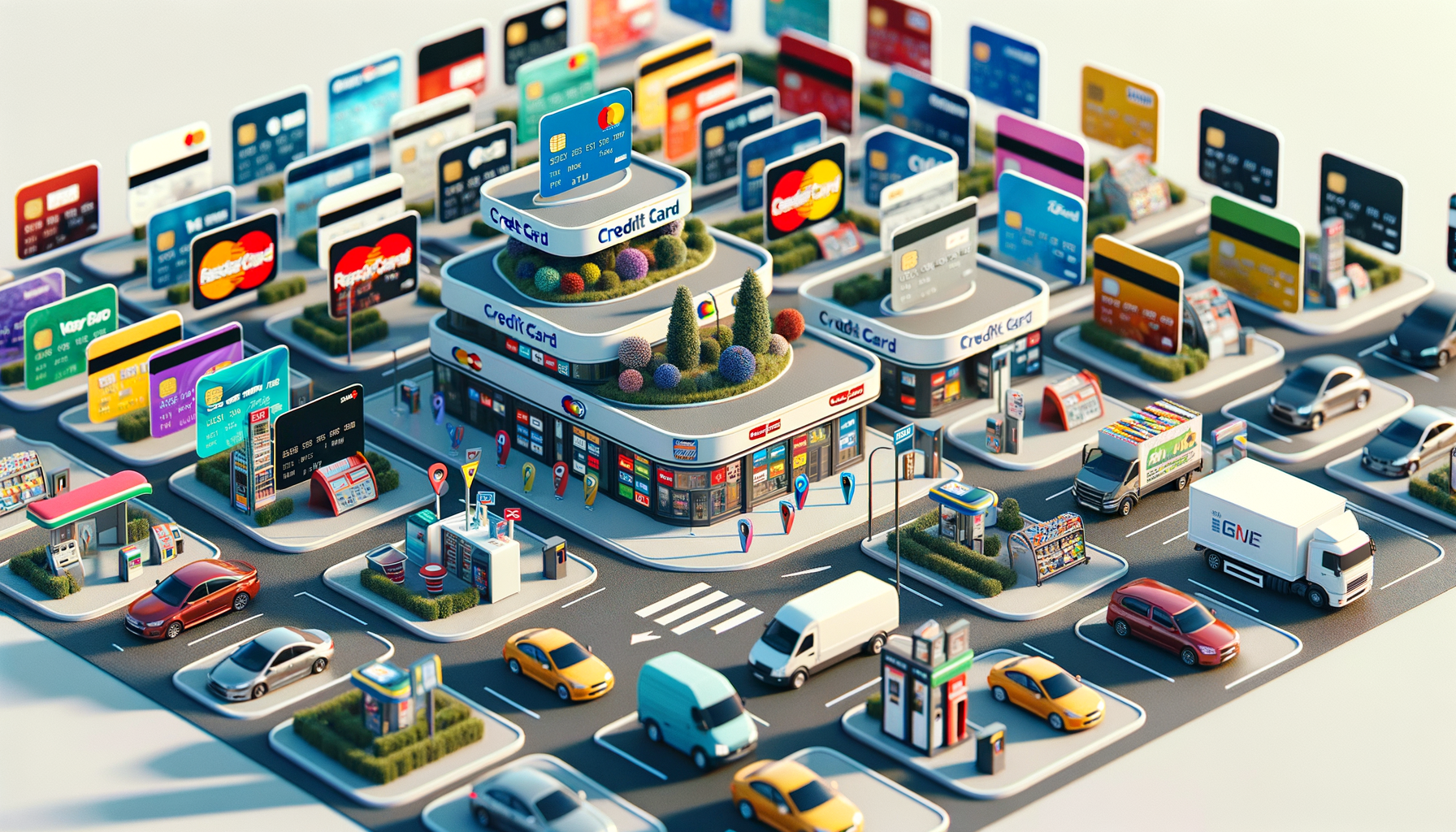
Exploring Credit Card Options for Everyday Use
The Basics of Credit Cards
Credit cards have become a ubiquitous part of modern financial life, offering a convenient way to manage expenses and build credit history. At their core, credit cards allow users to borrow funds up to a certain limit, which they can then repay with interest over time. This flexibility makes them appealing for everyday purchases and emergency expenses alike.
One of the primary advantages of credit cards is the ability to earn rewards on purchases. These rewards can range from cashback to travel miles, providing an added incentive for using the card. However, it’s crucial to understand the terms and conditions associated with these rewards to maximize their benefits. For instance, some cards offer higher rewards on specific categories like dining or groceries, which can be advantageous for those who frequently spend in these areas.
Understanding interest rates and fees is another critical aspect of credit card usage. Most cards come with an annual percentage rate (APR) that applies to carried balances. Paying off the full balance each month can help avoid these charges, but it’s important to be aware of any annual fees, late payment fees, or foreign transaction fees that may apply.
- Convenient payment method
- Potential to earn rewards
- Importance of understanding terms and fees
Choosing the Right Credit Card
With a plethora of credit card options available, selecting the right one can be overwhelming. The key is to align the card features with your financial habits and goals. For instance, if you travel frequently, a card that offers travel rewards and no foreign transaction fees might be ideal. Conversely, if you prefer simplicity, a straightforward cashback card could be more suitable.
Consider your spending patterns when evaluating credit card offers. Some cards provide higher rewards for specific categories, such as groceries, gas, or dining. If your spending aligns with these categories, you can maximize your rewards. Additionally, look for introductory offers, such as 0% APR periods or bonus rewards, which can provide significant value if used strategically.
It’s also important to consider the credit card issuer’s reputation and customer service. A card with excellent customer support can be invaluable in resolving disputes or addressing fraudulent charges. Reading reviews and comparing different cards can help you make an informed decision.
- Align card features with financial habits
- Maximize rewards based on spending patterns
- Consider issuer reputation and customer service
Managing Credit Card Debt
While credit cards offer numerous benefits, they can also lead to significant debt if not managed properly. It’s essential to use credit cards responsibly to avoid falling into a debt trap. One effective strategy is to set a budget and track your spending to ensure you can pay off the balance in full each month.
If you’re already dealing with credit card debt, consider consolidating your balances onto a card with a lower interest rate or a 0% APR introductory offer. This can reduce the amount of interest you pay and help you pay off the debt more quickly. Additionally, creating a repayment plan and sticking to it can help you regain control of your finances.
It’s also important to be aware of the impact of credit card debt on your credit score. High balances relative to your credit limit can negatively affect your score, making it more challenging to obtain loans or favorable interest rates in the future. Keeping your credit utilization ratio low is a key factor in maintaining a healthy credit score.
- Set a budget and track spending
- Consolidate debt to lower interest rates
- Maintain a low credit utilization ratio
Understanding Credit Card Security
Security is a paramount concern for credit card users, as fraud and identity theft are prevalent risks. Fortunately, credit card companies have implemented various measures to protect consumers. Features such as EMV chip technology, contactless payments, and two-factor authentication enhance the security of transactions.
In addition to these technological advancements, consumers can take proactive steps to safeguard their credit card information. Regularly monitoring account statements for unauthorized transactions is crucial. Many issuers offer alerts for suspicious activity, providing an additional layer of security.
It’s also important to be cautious when using credit cards online. Ensure that websites are secure before entering your card information, and avoid using public Wi-Fi networks for transactions. By staying vigilant and informed, you can significantly reduce the risk of fraud.
- EMV chip technology and contactless payments
- Monitor account statements regularly
- Use secure websites for online transactions
The Future of Credit Cards
As technology continues to evolve, the future of credit cards is poised for significant change. Digital wallets and mobile payment systems are becoming increasingly popular, offering a convenient and secure alternative to traditional cards. These platforms allow users to store multiple cards and make payments with a smartphone, enhancing the ease of transactions.
Furthermore, the integration of artificial intelligence and machine learning in credit card services is transforming the way consumers interact with their accounts. Personalized offers and real-time fraud detection are just a few examples of how AI is enhancing the credit card experience.
Looking ahead, sustainability is likely to play a more prominent role in the credit card industry. Some issuers are already offering eco-friendly cards made from recycled materials, and there is growing interest in rewards programs that promote sustainable spending habits. As consumer preferences shift, the credit card landscape will continue to adapt to meet these demands.
- Rise of digital wallets and mobile payments
- AI-enhanced personalized offers and fraud detection
- Eco-friendly credit card initiatives


